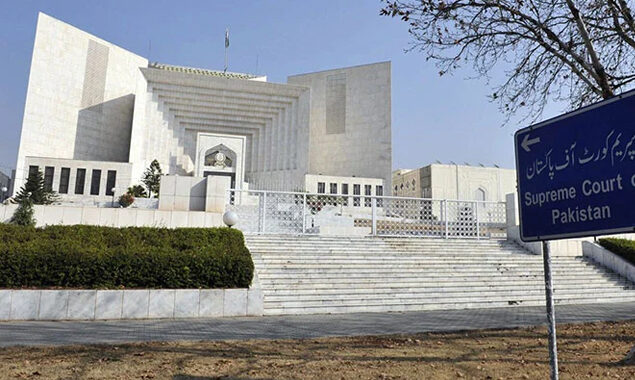
The Supreme Court has determined that a taxpayer cannot be required to provide records older than six years.
Justice Syed Mansoor Ali Shah wrote in a five-page ruling, “We hold that a taxpayer is required to maintain the record under Section 174(3) of the Ordinance for a period of six years,” while rejecting the Federal Board of Revenue’s (FBR) appeal against a Lahore High Court order that had set aside a notice to the taxpayer.
The petition was heard by a three-judge bench of the Supreme Court led by Chief Justice of Pakistan Umar Ata Bandial.
“The taxpayer may not be obliged to furnish the record for a tax year beyond the six-year timeframe specified in Section 174(3) of the Ordinance,” the ruling continued.
The court observed that a reading of the ordinance and the rules stipulated that any proceedings against a taxpayer based on the tax records they maintained must be launched within a predetermined time range.
The order said that Section 174 required the taxpayer to preserve the specified accounts, documents, and records for a period of six years. In this case, the only exemption was pending proceedings, in which case the taxpayer is required to keep the record until the conclusion of the proceedings.
“The same provision protects the taxpayer from being required to produce the record after the specified time period has expired.”
The court ruled that notices under Sections 161 and 165 and Rule 44(4) could only be responded to using the taxpayer’s records.
“[Therefore], a combined reading of Sections 161 and 165, Rule 44(4), Section 174(3), and Rule 29 demonstrates that the tax department is required to be watchful and efficient enough to move against a taxpayer within the statutory deadline specified in Section 174(3).”
Although there was no particular time restriction for the issuance of notices under Section 161(1A) or 165(2B) or Rule 44(4), the court emphasized that these provisions could not be implemented or given effect unless the taxpayer’s records were inspected and verified by the tax authorities. “Since the above-mentioned articles of law compel taxpayers to preserve records for a period of six years, notices older than six years are invalid. As the taxpayer is not required by law to preserve tax records beyond the stated statutory time, any notices requiring the taxpayer to provide such information are inconsistent with the ordinance’s unambiguous provisions and are therefore invalid.”
The court also noted that a harmonized reading of the statute required that Section 174(3) and sections 161 and 165 and Rule 44(4) must complement each other in order to promote the purposes of the ordinance and protect and safeguard the rights of both the tax manager and the taxpayer.
The court noted that the respondent taxpayer was required by Section 158 of the Ordinance to deduct tax from a sum to be paid to a recipient at the time and in the manner indicated.
“Section 165 read in conjunction with Rule 44(4) of the rules requires a taxpayer who deducts tax to provide a statement/reconciliation statement detailing the tax deducted and collected from a recipient. The legislation requires that the aforementioned declaration and reconciliation statement be written based on the taxpayer’s tax records. In accordance with Section 174(3) of the Ordinance and Rule 29(4) of the regulations, a taxpayer must keep tax records for six years following the end of the tax year to which they pertain.
Catch all the Court News, Pakistan News, Breaking News Event and Latest News Updates on The BOL News
Download The BOL News App to get the Daily News Update & Follow us on Google News.




